Is it possible that a foreign (white) woman could live, marry, and make a living in rural China?
外国白人女子有可能在中国农村生活、结婚并谋生吗?
以下是Quora网友的评论:
Simon Barry McNeil
Fully possible. I know people who have done it. But have you tried living in rural China yet? Expatriate life can sometimes be difficult. Before you go planning the rest of your life out, suggest getting like a one-year contract somewhere and giving it a go.
完全可能。我知道有人这样做过。你有没有尝试过在中国农村生活?外国人在中国生活,有时会很困难。在你开始计划你的余生之前,建议你在某个地方签一份为期一年的合同,先体验下
Shou'en Li
Everything is possible.
But “Rural China” is a big concept, since China is so vast in land area and diversified in land form.
Rural China can be like this. Yes, this is not an urban area, it is a picture of the wealthiest Chinese village — Huax Village, in eastern Jiangsu Province.
But it can also be like this — a kitchen inside a farm house in Guangx Zhuang Autonomous Region in southern China.
And there are picturesque villages with natural beauty or traditional taste dotted across the country.
一切皆有可能。
“中国农村”是一个大概念,中国幅员辽阔,各地也如此多样化。
中国农村可能是这样的。是的,这里不是市区,而是中国最富有的村庄——江苏省东部的华西村。
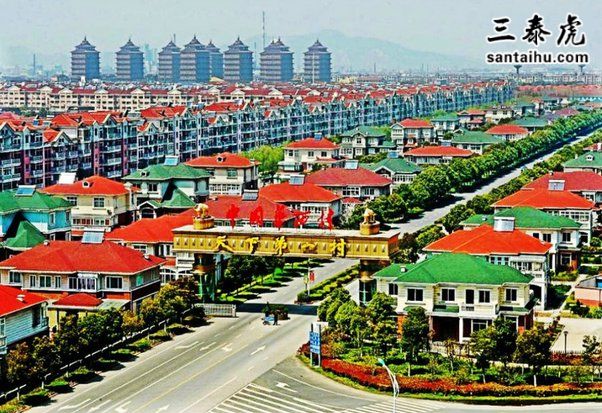
但它也可以是这样的——在中国南方的广西壮族自治区,一间农舍里的厨房。
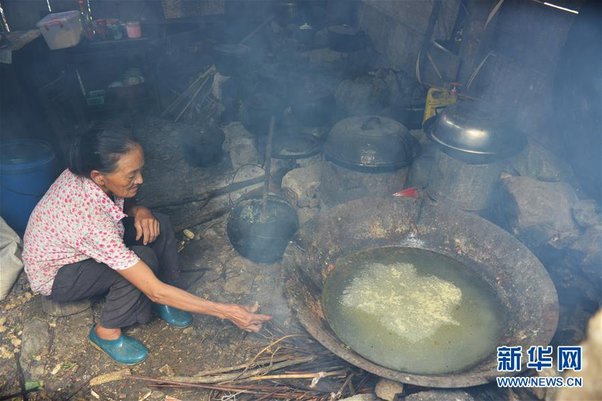
此外,全国各地还分布着风景如画、自然美景或传统风味的村庄。
A village in western Shaanx Province:
陕西省西部的一个村庄:
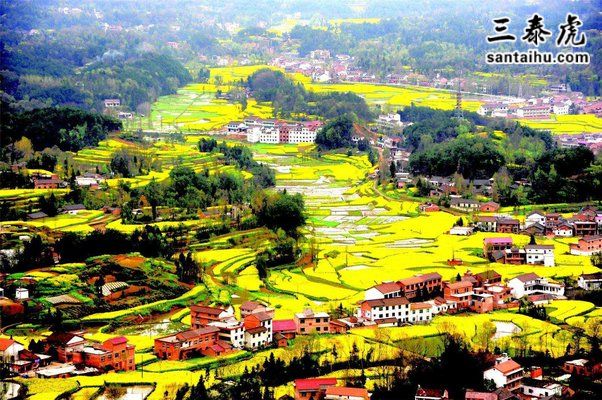
A village in central Anhui Province.
安徽省中部的一个村庄。

A Miao ethnic minority village in southwest Guizhou Province.
贵州省西南部的一个苗族村庄。
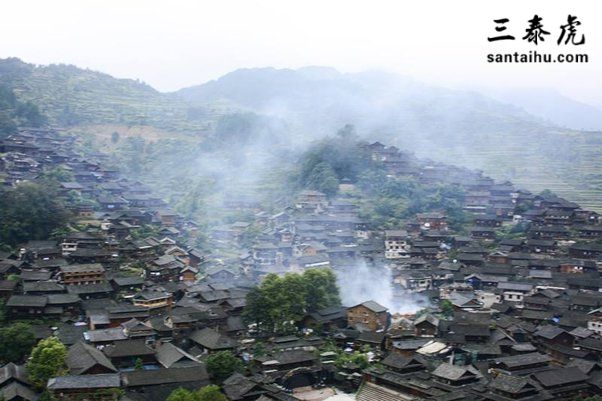
A “snow village” in northeastern Heilongjiang Province in the winter.
冬天,黑龙江省东北部的一个“雪乡”。
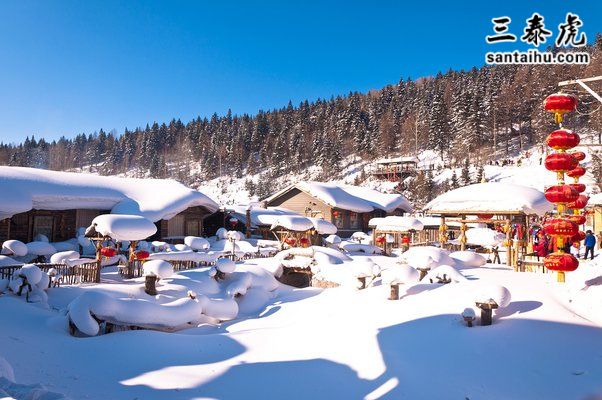
A village in the mountainous area of southwest Sichuan Province.
四川省西南部山区的一个村庄。
You can continue to find endless pictures of this kind…..
你可以找到无穷无尽的此类图片
So you need to get prepared, “rural China” here might be a total different experience of “rural China” there: different living standards, different living styles, different climates, different dialects (which make the Chinese ourselves cannot understand each other if not for the Putonghua, or standard Chinese), and different culture and customs, etc.
So, back to your question. Yes, of course, it’s possible for you to live, marry and make a living in “rural China,” but you need to carefully pick up the part of rural China which matches with your dream, or at least, your imagination.
因此,你需要做好准备,这里的“中国农村”可能与那里的“中国乡村”完全不同:不同的生活水平、不同的生活方式、不同的气候、不同的方言(如果不是普通话或标准汉语),以及不同的文化和习俗等等。
所以,回到你的问题来。是的,当然,你有可能在“中国农村”生活、结婚和谋生,但你需要仔细挑选与你的梦想相匹配的中国农村,或者至少是符合你的想象的那种。
Brittany Nicole
Yep, very easily. Been there, done that! Cost of living is low, if you’re a native English speaker you can make a really great salary teaching English, and finding a Chinese husband really wouldn’t be a problem ;)
是的,非常容易。去过中国那里!生活成本很低,如果你是一个以英语为母语的人,你教英语可以获得很高的薪水,找一个中国丈夫真的不是难事;)
Anonymous
Possible. But the question is, why? The fact that the person is living in rural area means he is quite poor. I suggest you not to.
可能的!但问题是,为什么这样做啊?我建议你不要这样做
William Gray
Are people in rural China used to seeing foreigners like in bigger cities?
No, they are not. While on tour in China, in 1999, we were driving in a tour van through the deep Chinese countryside, our guide saw a traditional Chinese farm house and decided to stop the tour, asked if we could see their place, they generously allowed us in. Several little boys were there; I am a very big westerner. They took one look at me and all uniformly: “Whoah!”
中国农村的人是否和大城市一样看到外国人觉得正常?
不。1999年,我们在中国旅时,驾驶旅行车穿过中国的乡村,我们的导游看到了一座传统的中国农舍,决定停止旅行,问我们是否能参观他们的家,他们慷慨地让我们进去。有几个小男孩在那里;我是一个很大的西方人。他们看了我一眼,异口同声地说:“哇!”
John Lombard
How many kids can a China woman have if her husband is white or foreigner?
This actually doesn’t depend on the nationality of the parents, but rather on the declared nationality of the child.
If the child is declared as a Chinese citizen, then normal Chinese laws and restrictions apply. If the child is declared as a foreign citizen, then Chinese laws do not apply.
如果一位中国女人的丈夫是白人或外国人,她能生几个孩子?
这实际上并不取决于父母的国籍,而是取决于孩子的国籍。
如果孩子入籍中国,则适用正常的中国法律和限制。如果孩子入籍外国,则中国法律不适用。
Hidesato Sakakibara
Are there any foreigners living in China?
There are many foreigners living in China. However, nearly all are on temporary visas. Very few can get permanent residency and even fewer can get citizenship. Therefore, it can be assumed that conditions remaining the same, most if not nearly all these foreigners will not be in China permanently.
有外国人住在中国吗?
有许多外国人住在中国。然而,几乎所有人都持有临时签证。很少有人能够获得永久居留权,能够获得公民身份的就更少了。因此,可以假设条件保持不变,几乎所有外国人不会永久留在中国。
Eric Miller
What is it like to live in rural China?
I lived in a Chinese village for a year, so I can say a bit about what it is like for a foreigner to live in rural China, and a bit about the people I know there.
I lived in a moderately prosperous village in central Shandong Province, where most of the income came from agriculture. The population was about 880. I was there to research old age in the village. Mostly, everyone lives in courtyard houses packed close together in the center of the village. The houses are bigger than urban apartments, with several rooms and a courtyard. Some homes are clean and pretty well furnished, while others were messy and not so clean. In most, the kitchens are still outside, there is a water pipe in the courtyard, and no toliet, shower or central heat. People have televisions, washing machines, motorcycles. A few have cars.
生活在中国农村是什么感觉?
我在中国的一个村庄住了一年,我可以说一点外国人在中国农村生活的感觉,以及一些我在那里认识的人。
我住在山东省中部一个中等富裕的村庄,那里的人大部分收入来自农业。人口约880人。我在那里研究村里的老年人。大多数情况下,每个人都住在村里的四合院里。这些房子比城市公寓大,有几个房间和一个庭院。有些房子很干净,家具很好,而另一些房子则很乱,不那么干净。大多数情况下,厨房在外面,庭院里有水管,没有厕所、淋浴或中央供暖。人们有电视、洗衣机、摩托车。少数人有汽车。
People were generally quick to comment about how much poorer and harder life there is than in the cities, but in many ways, their lives were pretty good. The air was clear, the water was good, and we had a constant supply of locally grown vegetables, fruits, and eggs. The local tofu was amazing at sunrise, freshly made and still warm with just a simple spicy vinegar sauce. The local beer was good, too. They didn't eat so much meat--mostly pig liver and pig ears, and scrawny chickens. The generally only eat what they grow themselves. I ended up hiring a cook, as just going to market to buy food would have taken me a huge amount of time.
Rural life revolves around the seasons. This area had a corn harvest and a wheat harvest, and each harvest is a very busy time. In between is much more relaxed. There is work to do, but people can do it at their own pace. Life also revolves around the markets, where people go to socialize and buy and sell produce and other items. These are held every ten days, but there is pretty much a market somewhere in the area every day.
你可能会说,那里的生活比城市里更贫穷、更艰难,但在很多方面,他们的生活都很好。空气清新,水质良好,当地种植的蔬菜、水果和鸡蛋源源不断。日出时,当地的豆腐令人惊叹,新鲜制作,仅用一种简单的辣醋酱汁就可以保持温暖。当地的啤酒也不错。他们没有吃那么多肉——主要是猪肝和猪耳朵,还有瘦骨嶙峋的鸡。他们通常只吃自己种的东西。我最后雇了一个厨师,因为去市场买菜会花费我大量的时间。
乡村生活围绕着季节而不同。这个地区收获玉米和小麦,每一次收获都非常繁忙。其他时间要轻松得多。有工作要做,人们可以按照自己的节奏去做。生活也围绕着市场,人们在那里进行社交,买卖农产品和其他物品。这些活动每十天举行一次
Typical days, older people would go to the fields to tend to the crops, younger people would head off to the city to work, and children would go to school. Some of the crops were processed and stored at the house. The old men would gather in the center of the village for endless retellings of fighting the Japanese and to watch games of Chinese chess. Women tended to gather closer to their homes. In the evenings, people of all ages would tend to gather on the streets under the lights to chat, play cards, pool, or other games.
I spent a lot of time going to weddings, where there is a lot of eating and drinking. There are other holidays, and visits to people to celebrate 100 days after a baby is born, for example. Spring Festival in the village is great, with all of the decorations and making and eating of dumplings and many foods and drinking from morning to evening, and firecrackers.
For me, it was a great privilege to get to know these people. It could be a bit lonely, since no one spoke English (including the English teacher), and certainly no one would understand most of my kinds of jokes. I gravitated towards people who were a little more worldly than most. One good friend is a farmer, but also a tinkerer. Another knew the village genealogies, was an avid reader and knew more than anyone about various customs. Yet another was a man who retired from a career in the navy and so had visited many countries.
年长的人会去田里照料庄稼,年轻的人会进城工作,孩子们会上学。一些农作物被加工并存放在房子里。老人们会聚集在村子的中心,没完没了地讲述与日本人作战的故事,观看中国象棋比赛。女性倾向于聚集在离家较近的地方。晚上,各个年龄段的人都会聚集在灯光下的街道上聊天、打牌、游泳池或其他游戏。
我去参加婚礼,那里有很多吃的和喝的。例如,还有其他节日,以及在婴儿出生100天后的庆祝。村里的春节氛围非常不错,从早上到晚上都有各种各样的装饰、饺子的制作和食用,还有很多食物和饮料,还有鞭炮。
对我来说,能认识这些人是一种莫大的荣幸。这可能有点孤独,没有人会说英语(包括英语老师),当然也没有人会理解我的大多数笑话。我喜欢那些比大多数人更世俗的人。一个好朋友是一个农民,也是一个修补匠。另一个知道村庄家谱,是一个狂热的读者,比任何人都更了解各种习俗。还有一位是从海军退役的男子,他曾访问过许多国家。
I had internet access, and so was not completely cut off from the world, but I watched local TV and got into some of the serial dramas. I enjoyed hiking in the fields and mountains and bird watching in the early mornings. I was kept busy with my work and having meals and banquets with people, and also with photography.
Compared to living in the cities, it could be a bit dull, or at least there were less options. The variety of vegetables was fantastic, but it was always the same style of food. If I wanted even something like a bowl of rice or Sichuan food I had to go into town (People there eat steamed bread and dumpling, mostly, not rice.)
我可以上网,所以并没有完全与世界隔绝,我看当地的电视,也看一些连续剧。我喜欢在田野和山上徒步旅行,在清晨赏鸟。我一直忙于工作,与人一起吃饭和宴会,还忙于摄影。
与在城市生活相比,这可能有点乏味,或者至少选择更少。蔬菜种类繁多,但总是同一种食物。如果我想要一碗米饭或川菜之类的,我必须进城(那里的人大多吃馒头和饺子,而不是米饭)
此文由 三泰虎 编辑,未经允许不得转载!:首页 > 问答 » 外国白人女子有可能在中国农村生活、结婚并谋生吗
 如果印度软实力真的比中国强,为什么比起印地语,外国人更愿意学习中文呢
如果印度软实力真的比中国强,为什么比起印地语,外国人更愿意学习中文呢 外国人:在中国生活的十大理由是什么
外国人:在中国生活的十大理由是什么 Quora:中国的医院怎么样,公立医院更好还是私立更好,外国人在中国的就医体验
Quora:中国的医院怎么样,公立医院更好还是私立更好,外国人在中国的就医体验 在中国取得医学博士学位、汉语流利的外国人毕业后能否进入中国医院工作
在中国取得医学博士学位、汉语流利的外国人毕业后能否进入中国医院工作 Quora: 住在中国农村是什么样的感受
Quora: 住在中国农村是什么样的感受 为什么那么多外国人涌入泰国找女人
为什么那么多外国人涌入泰国找女人 为什么中国一些农村和城市一样富裕,看这些图片就知道了
为什么中国一些农村和城市一样富裕,看这些图片就知道了 作为外国人,和中国人一起工作好吗
作为外国人,和中国人一起工作好吗